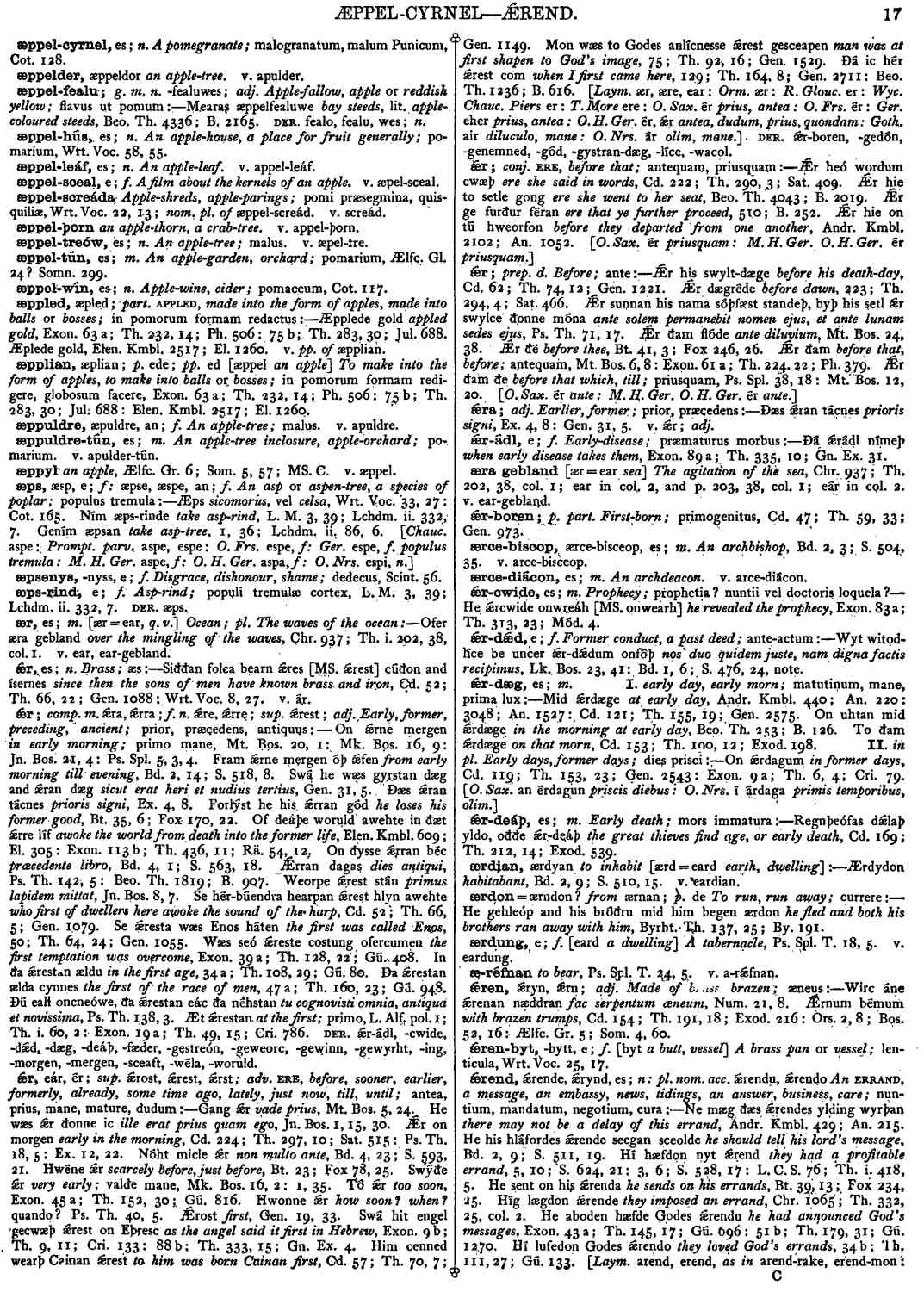ǽrend
- noun [ neuter ]
-
Ne mæg ðæs ǽrendes ylding wyrþan
there may not be a delay of this errand,
- Andr. Kmbl. 429 ;
- An. 215 .
-
He his hláfordes ǽrende secgan sceolde
he should tell his lord's message,
- Bd. 2, 9; S. 511, 19 .
-
Hí hæfdon nyt ǽrend
they had a profitable errand,
- 5, 10; S. 624, 21: 3, 6 ;
- S. 528, 17 :
- L. C. S. 76 ;
- Th. i. 418, 5 .
-
He sent on his ǽrenda
he sends on his errands,
- Bt. 39, 13; Fox 234, 25 .
-
Híg lægdon ǽrende
they imposed an errand,
- Chr. 1065; Th. 332, 25, col. 2 .
-
He aboden hæfde Godes ǽrendu
he had announced God's messages,
- Exon. 43a; Th. 145, 17 ;
- Gú. 696: 51b ;
- Th. 179, 31 ;
- Gú. 1270 .
-
Hí lufedon Godes ǽrendo
they loved God's errands,
- 34b; Th. 111, 27 ;
- Gú. 133 .
Bosworth, Joseph. “ǽrend.” In An Anglo-Saxon Dictionary Online, edited by Thomas Northcote Toller, Christ Sean, and Ondřej Tichy. Prague: Faculty of Arts, Charles University, 2014. https://bosworthtoller.com/751.
Checked: 1